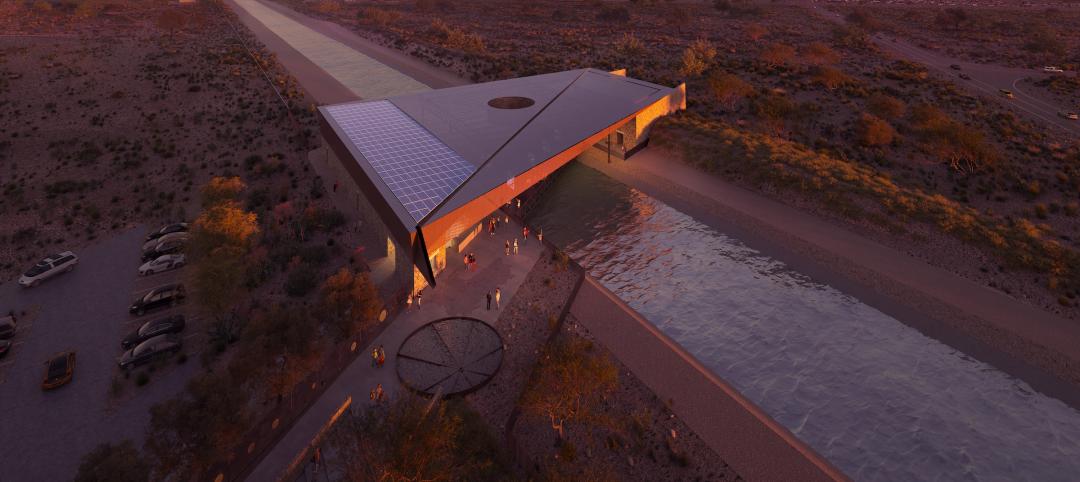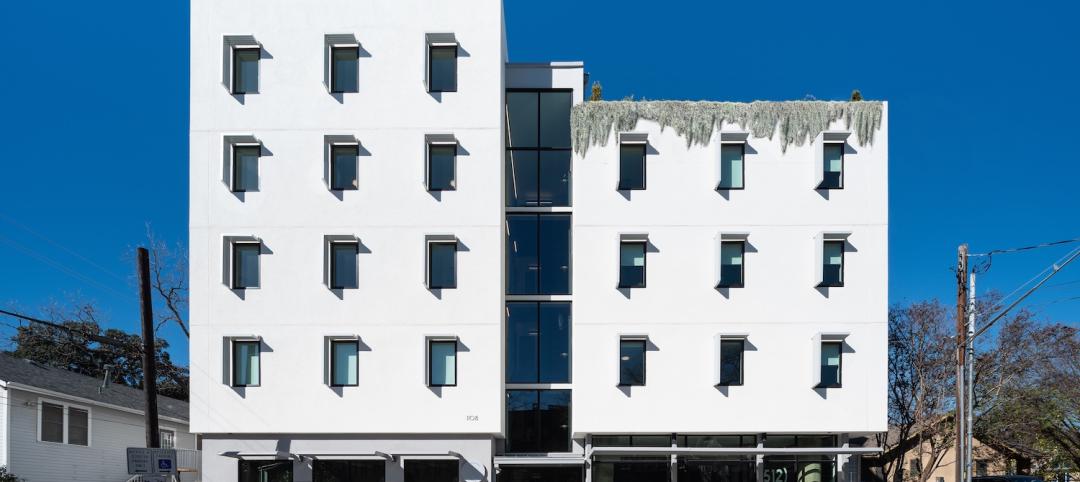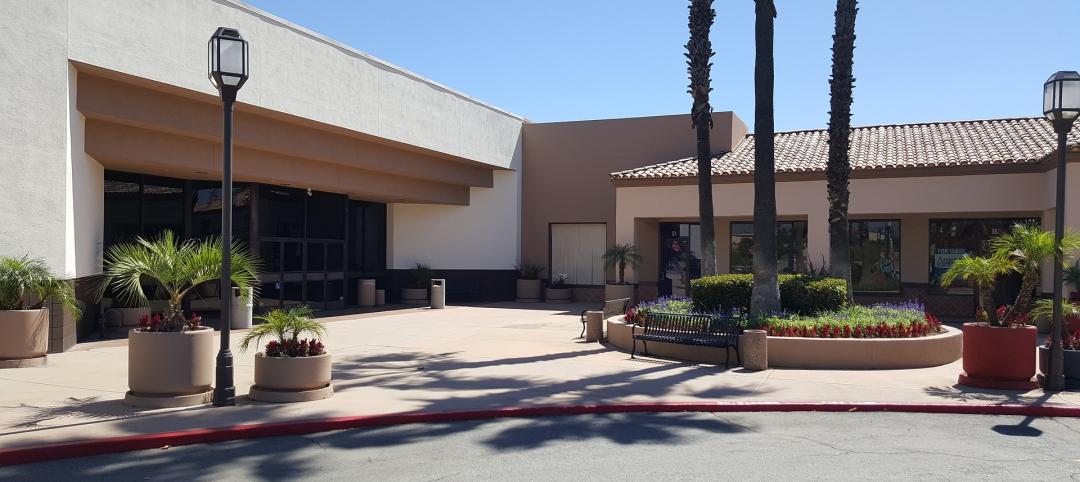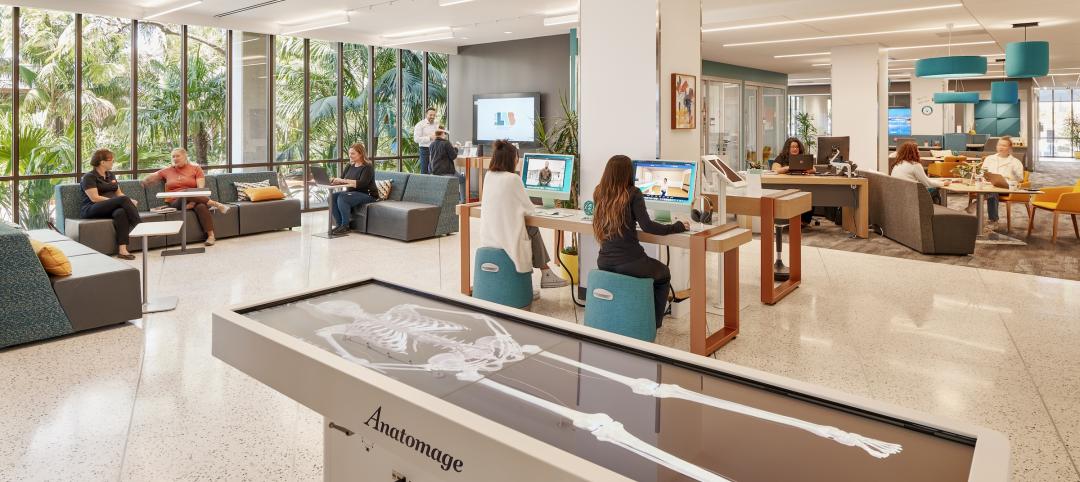In recognition of the importance of sustainable parking facilities and practices to the development of sustainable communities, the Green Building Certification Institute (GBCI), the certification body for the U.S. Green Building Council’s global LEED green building rating system, today signed a memorandum of understanding (MOU) with the International Parking Institute (IPI), the world’s largest parking association, and the Green Parking Council (GPC).
“Sustainability in parking is integral to building a greener future, not only structurally, but also by shaping transportation networks that support more livable, walkable communities,” said Mahesh Ramanujam, president, GBCI. “This agreement will also expand the GBCI’s portfolio and mission to recognize excellence in green performance and practice.”
The three organizations will work in a strategic partnership for the delivery and promotion of the GPC’s recently launched Green Garage Certification program, which applies to both new and existing parking structures.
Green Garage Certification was developed by experts from a range of related fields, including parking, architecture, engineering, technology, property management, and academia. It assesses 50 elements of parking facility sustainability, including management practices that maximize performance while minimizing waste; programs encouraging alternate modes of transportation and community engagement; and efficient and sustainable technology and structure design.
“This is a game-changer,” explained John Schmid, chairman of GP, an affiliate of IPI. “Collaborating with the GBCI will result in a multiplier effect, dramatically increasing awareness of sustainable parking design, operations, and management. This is an epic moment for parking and a giant leap forward toward a more environmentally and economically sustainable garage of the future”
“With GPC’s Green Garage Certification standards, IPI’s established focus on education related to sustainability, and GBCI’s distribution channels all working in sync, we’re enthusiastic that we can mainstream sustainable parking,” said Shawn Conrad, CAE, IPI’s executive director. “We are confident that will have a positive, far-reaching effect on the environment.”
Related Stories
Cultural Facilities | Nov 21, 2023
Arizona’s Water Education Center will teach visitors about water conservation and reuse strategies
Phoenix-based architecture firm Jones Studio will design the Water Education Center for Central Arizona Project (CAP)—a 336-mile aqueduct system that delivers Colorado River water to almost 6 million people, more than 80% of the state’s population. The Center will allow the public to explore CAP’s history, operations, and impact on Arizona.
MFPRO+ New Projects | Nov 21, 2023
An 'eco-obsessed' multifamily housing project takes advantage of downtown Austin’s small lots
In downtown Austin, Tex., architecture firm McKinney York says it built Capitol Quarters to be “eco-obsessed, not just eco-minded.” With airtight walls, better insulation, and super-efficient VRF (variable refrigerant flow) systems, Capitol Quarters uses 30% less energy than other living spaces in Austin, according to a statement from McKinney York.
MFPRO+ News | Nov 21, 2023
California building electrification laws could prompt more evictions and rent increases
California laws requiring apartment owners to ditch appliances that use fossil fuels could prompt more evictions and rent increases in the state, according to a report from the nonprofit Strategic Actions for a Just Economy. The law could spur more evictions if landlords undertake major renovations to comply with the electrification rule.
Codes and Standards | Nov 21, 2023
Austin becomes largest U.S. city to waive minimum parking requirements
Austin, Texas recently became the largest city in the United States to stop requiring new developments to set a minimum amount of parking. The Austin City Council voted 8-2 earlier this month to eliminate parking requirements in an effort to fight climate change and spur more housing construction as Texas’s capitol grapples with a housing affordability crisis.
MFPRO+ News | Nov 21, 2023
Underused strip malls offer great potential for conversions to residential use
Replacing moribund strip malls with multifamily housing could make a notable dent in the housing shortage and revitalize under-used properties across the country, according to a report from housing nonprofit Enterprise Community Partners.
Giants 400 | Nov 16, 2023
Top 100 Science + Technology Facility Architecture Firms for 2023
Gensler, HDR, Page Southerland Page, Flad Architects, and DGA top BD+C's ranking of the nation's largest science and technology (S+T) facility architecture and architecture/engineering (AE) firms for 2023, as reported in Building Design+Construction's 2023 Giants 400 Report. Note: This ranking factors revenue from all science and technology (S+T) buildings work, including laboratories, research buildings, technology/innovation buildings, pharmaceutical production facilities, and semiconductor production facilities.
Resiliency | Nov 16, 2023
How inclusive design supports resilience and climate preparedness
Gail Napell, AIA, LEED AP BD+C, shares five tips and examples of inclusive design across a variety of building sectors.
Retail Centers | Nov 15, 2023
Should retail developers avoid high crime areas?
For retailers resolute to operating in high crime areas, design elements exist to mitigate losses and potentially deter criminal behavior.
MFPRO+ News | Nov 15, 2023
Average U.S multifamily rents drop $3 to $1,718 in October 2023: Yardi Matrix
Multifamily fundamentals continued to soften and impact rents last month, according to the latest Yardi Matrix National Multifamily Report. The average U.S. asking rent dropped $3 to $1,718 in October, with year-over-year growth moderating to 0.4%, down 40 basis points from September. Occupancy slid to 94.9%, marking the first decline in four months.
MFPRO+ Special Reports | Nov 14, 2023
Register today! Key trends in the multifamily housing market for 2024 - BD+C Live Webinar
Join the BD+C and Multifamily Pro+ editorial team for this live webinar on key trends and innovations in the $110 billion U.S. multifamily housing market. A trio of multifamily design and construction experts will present their latest projects, trends, innovations, and data/research on the three primary multifamily sub-sectors: rental housing, senior living, and student housing.
















